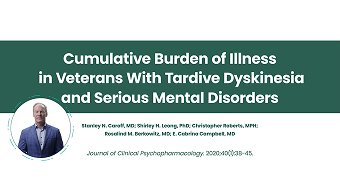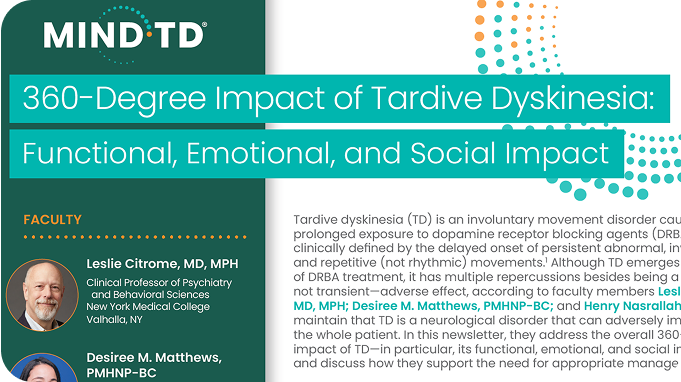

~10 mins
•Jan 2025
Cumulative Burden of Illness in Veterans With Tardive Dyskinesia and Serious Mental Disorders
This interactive resource emphasizes the importance of informed tardive dyskinesia care and provides guidance at each stage of the patient journey: whom to screen for tardive dyskinesia, how to screen, and how to follow up. This hypothetical patient journey is intended to provide general information and is not representative of all patient experiences.

Patient Case Description
Jamie is a 47-year-old woman who lives with her husband and works as a veterinary technician. Two years ago, she was diagnosed with bipolar disorder and since then has been treated with a variety of psychiatric medications, including an atypical antipsychotic. She has been working hard to improve her mental health and has generally good medication adherence and regular attendance at appointments.
Step 1

Step 2

Step 3

Step 4

Step 5

Step 6



~10 mins
•Jan 2025


~3 mins
•Feb 2022
“Are You Really Okay?” How Tardive Dyskinesia Affects Day-to-Day


~5 mins
•Dec 2024